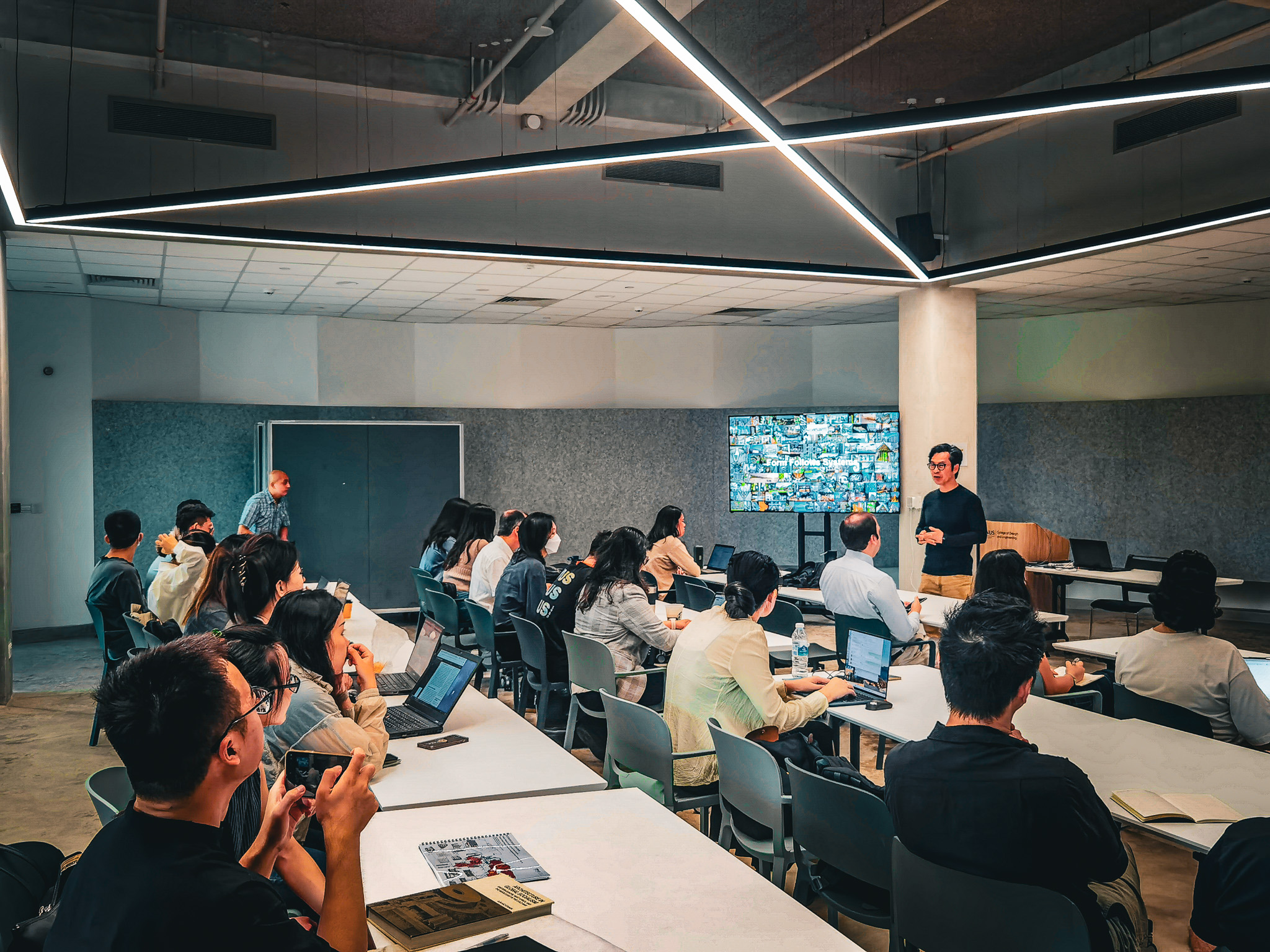Graduate Research Symposium 2024

Urban Planning and Renewal
Time: 14:30PM – 16:30 PM
Venue: ER1, SDE4
Moderated by: Dr. Dorothy Tang, Assistant Professor
Speakers:
Wenjie Zhang
Clarifying Key Terminology and Trends in Urban Redevelopment Research
Abstract: Rapid urban population growth has intensified conflicts over limited land resources, necessitating approaches beyond boundless expansion, such as upgrading existing sites. Consequently, terms like “urban renewal,” “urban regeneration,” and “urban revitalization” (3URs) frequently appear in both academia and policy discussions to address urban challenges. However, inconsistent use of these terms can create ambiguity in urban redevelopment research, complicating information retrieval and undermining a cohesive knowledge structure. This study aims to clarify these terms through a linguistic analysis of their similarities and differences. Using the 3URs framework, we explore historical and recent developments in urban transformation research. From an initial 1,152 articles collected via Web of Science, 409 articles from 2020-2024 were selected for in-depth analysis using CiteSpace software. The findings will help researchers enhance precision in terminology use, clearly express their research focus, and understand recent trends in urban redevelopment studies. It also serves as a reference for effective communication, collaboration, and future research exploration.
Wenze Xie
Impacts of the built environment on bike sharing commute – a case study of Hangzhou
Abstract: The primary aim of this research is to investigate how the urban built environment shapes individuals’ behavior and satisfaction with bike-sharing systems, with a focus on Hangzhou, China.
Mobility plays a vital role in both society and the economy yet remains one of the most significant environmental challenges. Transport is a major contributor to CO2 emissions, with road vehicles accounting for three-quarters of these emissions (IEA, n.d.). Bike-sharing, as an alternative or complement to traditional transport, has the potential to mitigate environmental harm and reduce carbon emissions (Hua et al., 2022; Liu & Lin, 2019; Sago, 2020).
However, most existing studies primarily focus on the origin and destination of trips, paying little attention to the environmental factors along the routes that may influence behavior. Moreover, limited research has explored the relationship between the built environment and user satisfaction with bike-sharing as a commuting option, highlighting a gap that this study aims to address.
Therefore, this research will adopt both qualitative and quantitative methods, including collaboration with a bike-sharing company to access relevant data, as well as questionnaire surveys and interviews to capture users’ experiences and attitudes to better understand how build environments shape their behaviours.
Ultimately, this study seeks to identify which features of the built environment can be reshaped or developed to promote bike-sharing, create stronger synergies with public transport, and contribute to more sustainable urban mobility systems.
Xinyi Wang
Urban Renewal and Social Area Dynamics: Reviewing the Social Impacts of Gentrification in Postcolonial, Globalized Singapore (1990s-2020s)
Abstract: This research proposes an investigation into the social impacts of urban renewal and gentrification in Singapore, with a focus on the city’s postcolonial, globalized transformation. Singapore’s unique dual identity—aspiring as a global city while preserving its multicultural heritage—has created a distinct socio-spatial landscape where cosmopolitan influences intersect with local identity, generating complex dynamics in social differentiation and spatial segmentation. Employing a social area analysis approach, this research will identify patterns of spatial inclusion and exclusion, with particular attention to intersectional factors, including ethnicity, language, income, and housing type. By examining different forms of gentrification — including residential, environmental, and commercial — this study will analyze how urban renewal has facilitated infrastructure improvement and increased living standards, while also bringing forth new forms of social and economic inequalities. The findings of this research will contribute to a deeper understanding of gentrification’s socio-spatial impacts in a postcolonial city navigating globalization. The outcomes will provide insights into balancing economic growth with social equity and community cohesion, offering policy recommendations to promote inclusive urban development in multicultural, rapidly urbanizing societies.
Fan Lei Helen
Keeping up the Appearances of Lin-pan: High-tech Agrarian Transformation in Peri-urban Chengdu
Abstract: This research investigates the transformation of the vernacular agrarian settlement, Lin-pan, that characterizes peri-urban Chengdu, by focusing on the challenges from the preservation of Lin-pan landscape appearances for its symbolic agrarian cultural representation, with the implementation of major functional changes of Lin-pan driven by China’s modernisation pursuits in big-data based urban-rural spatial planning and agrarian technological advancements in “High-Standard Agriculture Land” developments. The implementation of modern high-tech agrarian transformation is still deeply bounded by numerous underlying systems of Chengdu’s urban-rural planning history and institutional operations, and presents contradictions or opportunities across institutional, economical, cultural, socio-ecological, and agrarian operational domains. I approach the research by articulating and examining the complex interactions among state institutions, private-sector implementations, and local village practices during the preservation and modernisation process of Lin-pan, and tracing the spatial pattern changes resulting from these interactions. This research aims to delineate the contested productions of the subject of “agriculture” involved in this new stage of agrarian transformation and the associated emerging peri-urban spatial qualities.